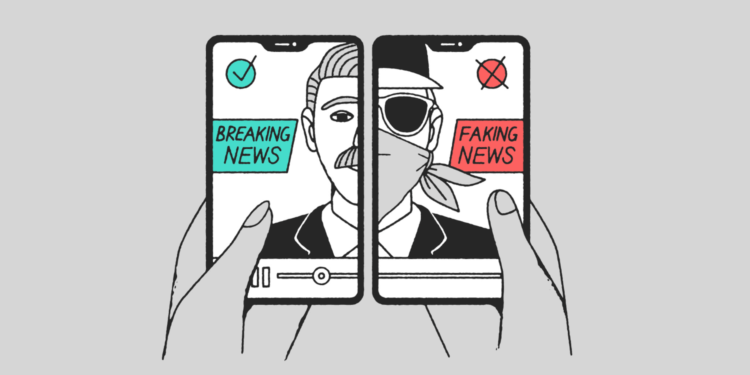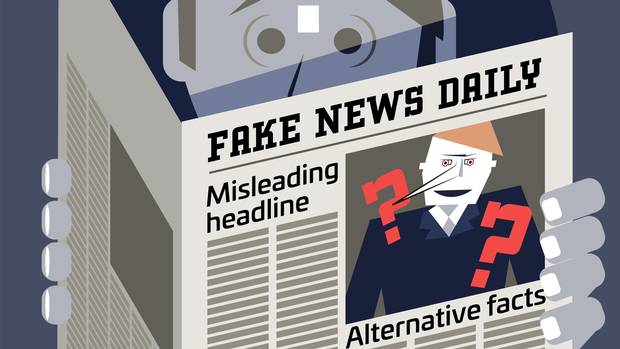
Greetings, dear friends! For a long time I have not written any articles and analyzes, but today I decided to please you. Pavluu is in touch. The motivation for writing this article was that I found an article with the same title and absolutely disgusting content: evidence drives obviousness into evidence. In general, reading for retirees. Therefore, catch what is more true.
Today, a modern person lives in an era of an overabundance of information: we spend our days buried in smartphones, flipping through news channels, public pages with goods and memes, we receive dozens of push notifications a day, we hear the radio in a taxi or a car, we receive spam on e-mail. mail or SMS messages, we communicate in instant messengers with dozens of people a day.
We constantly receive some kind of information, in completely different forms: whether it be contextual advertising, a conversation of strangers in a subway car, or an article headline that you read by accidentally turning your head at a newspaper promoter. Infa literally splashes from everywhere, trying to huddle between our convolutions.
This crazy informational noise serves as an excellent field for throwing in various stuffing and playing on the mood of the public, directing the collective unconscious in one direction or another, manipulating the opinions of thousands of ordinary people who did not turn on their critical thinking in time or are simply "blanks", on which you can write anything - they are most often not inclined to analyze information and are guided by the opinion of the crowd, blindly believing in any nonsense. Alas, in the era of consumption, there are a lot of such people and that is why fake news flourishes and takes various forms.
What is fake news?
- Fake news is information or informational product in which there is almost no (or completely absent) truth. This is a specially distorted information aimed at causing certain reactions in society. As a rule, this is negative. Or just a state of ignorance.
- Fake news today are newspaper "ducks" from the past. Previously, they were easy to spot, but today they have transformed and learned to disguise themselves.
- Fake news is information whose credibility is blown to smithereens if you ask a few correct questions or ask for certain testimonies. It's just a fucking bullshit, which is obvious if you think about it for at least 10 minutes.
Why do we believe this shit?

- We have no knowledge. Often there is such a situation that we simply do not understand the issue. Our knowledge is insufficient to assess the reliability of the information. We have no choice but to trust the "experts" or "specialists". After all, we will not even google who they are and whether they can really be right in this or that question.
- We do not verify the information. "We don't have time for this," or we're just too lazy. We don't want to know for sure, because we live in an era of content consumption. If the news does not strongly concern ourselves, most likely we will not dig and check its reliability. We just read the headlines. We dont give a fuck.
- We focus on the environment. Often, for the two reasons described above, we resort to a simple way of perception - we take the popular opinion of others and accept it as our own. Especially if we believe that the environment is well versed in the matter. It's very convenient to think so.
- The neural networks we deserve. Technology does not stand still and we can observe how fake news develops along with it. A good example is deepfakes - fake videos created with neural networks. For example, porn with various movie stars who have never starred in porn. This kind of stuffing has already been banned in China. Another example is DeepNude, a program for undressing girls using a neural network. Also a funny thing, with which you can easily mislead anyone who does not know about it.
- Content consumption rate. This figure is growing from year to year. We are consuming more and more content, faster and faster, every day. We read the news in Telegram in the morning, at lunch we leaf through the feed on Facebook, VKontakte, and Instagram. In the evening, we check who tweeted on our Twitter, and then we watch a few videos on YouTube. The content consumption cycle is inherently endless. It is only when we sleep that we do not consume. And then, this is a big question .. Is it easy to squeeze fake news here? What do you think?
- Propaganda. "Propaganda works until it becomes too explicit." Perhaps the overwhelming majority of fake news reeks of political propaganda or lobbying for someone's interests. There are many victims of propaganda, and state influence is inalienable here.
How not to fall for fake news?
- We turn on our critical thinking and question everything. We google facts, looking for relationships, sources. We ask ourselves questions and answer them.
- We ask for evidence confirming the information, if we are talking about verbal / business exchange of information.
- We read news only from trusted sources. We try not to change them. We exclude any media that at least once pierced and tried to sell you a "duck".
- We exclude all propaganda media.
- We ask the opinion of only those who are really knowledgeable in the matter and have sufficient knowledge and experience.
- We don't read the news at all. Actually, why not? In fact, no one forbade learning Zen.
Thanks for reading this article. We hope this simple breakdown will help you become more attentive and legible about the news and what you read. Have a nice day everyone!
